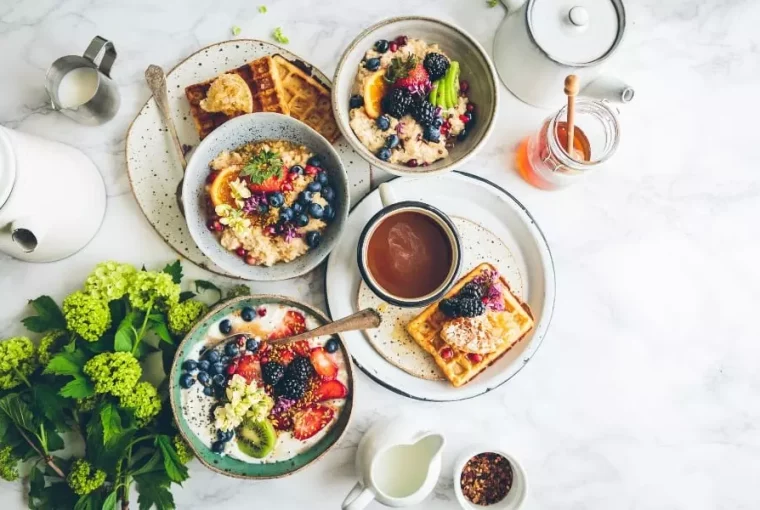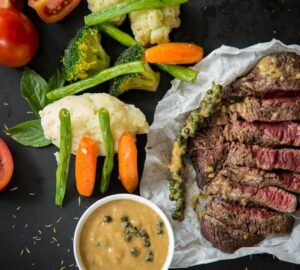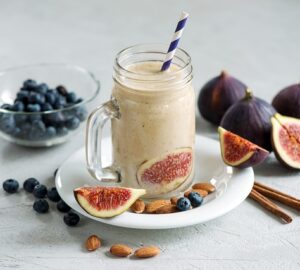As an athlete, you may worry a lot about what you eat. That’s normal.
Depending on your sport, you may have to eat a lot to gain muscle mass and you may even have to maintain a strict diet for prolonged periods. But whatever the case, they need to ensure that they are getting all the proper nutrients.
A vegan lifestyle or a plant-based diet can provide all the necessary proteins and nutrients if you know what to eat and when to eat it. If you’re an athlete who has just started the vegan lifestyle, you need to stay away from processed junk food, maintain a balanced diet, and eat the right vegetables and plants.
To help you out, in this article we will talk about the vegan athletic lifestyle and provide more information on the food, plants, and vegetables necessary for a balanced and nutritious diet.
How Does A Vegan Diet Work?
A vegan diet focuses mostly on eating healthy plants and vegetables. You also have fruits, nuts, seeds, rice, bread, vegetable oils, and other varieties of food made from plants. It excludes animal products such as beef, lamb, pork, fish, eggs, cheese, and other dairy products.
However, there is an alternative to a vegan diet, which is called a plant-based diet. Now, a plant-based diet is used as an umbrella term and sometimes it includes a limited amount of animal products such as dairy and eggs.
Is It Enough for Athletes?
A lot of myths and misconceptions about vegan diets can worry athletes and make them wonder if it’s enough to maintain their performance, especially those who eat meat get enough protein, iron, phosphorus, and calcium.
If you follow a vegan diet, you too can have all these nutrients but you would need to be more focused, knowledgeable, and in control of what you’re eating. Sometimes you need to mix up recipes to come up with the perfect organic recipes and keep your food menus exciting.
Just eating random plants and fruits will not get you far. Vegan diets can enhance stamina by reducing weight and making you leaner, faster, and more agile. Eating veggies and fruits reduce the chance of storing extra fat or calories in your body.
But if your sport requires you to gain weight and muscle mass, there are plenty of high-calorie enriched vegan foods as well. One of the biggest myths or misconceptions is that meat protein is superior to plant protein.
Yes, red meat contains high portions of protein but that amount is not always necessary and protein is not the only thing that comes with meat. When eating meat, you also need to be aware of the amount of saturated fat, antibiotics, cholesterols, and GMOs or genetically modified organisms. While with nuts, seeds, and veggies, you can get vitamins, nutrients, and fibers.
Tips For Making The Perfect Vegan Diet
If you are in search for the perfect Vegan diet to maintain and perhaps even enhance your athleticism, the following tips might come in handy:
1. Make a Routine
Just like any other diet, a vegan diet needs discipline and hard work to follow through. But have faith in the process and in yourself. For athletes, a diet plan is not just about the type of food one can eat for breakfast, lunch, and dinner. It’s more of a combination of these three meals plus, post-workout, pre-workout, hydration, and nutrition-recovery meals.
Protein, healthy fats, and fiber should be your top priority when creating your routine. Protein and fiber will make sure you have enough fuel to perform your daily routines and exercises. The healthy fats will ensure you don’t starve throughout the day.
2. Make Sure You Get your Necessary Calcium
Athletes, especially runners, always need to have sufficient calcium. Your bones go through a lot on a daily basis compared to an average human. This is why you need your daily dose of calcium to keep your bones strong and healthy for a long time.
Others would usually get their necessary calcium from dairy products but you can get the same amount from a variety of different vegan foods such as broccoli, kale, spinach, and bok choy. Tofu and Soymilk are also great for calcium. Lastly, fortified cereal and pure orange juice also contain a good amount of calcium.
3. Always Stay Rich on Vitamin B12
Vitamin B12 enhances your metabolism and is very important for blood health. It’s a lesser-known vitamin but is necessary for athletes. Lack of Vitamin B12 can cause exhaustion.
The catch is that Vitamin B12 is more commonly found in animal products. Plants and vegetables also have it but in a lower proportion. However, there are plenty of fortified cereals, nutritional yeast, and faux-meat products that contain a healthy dose of Vitamin B12.
But be careful with the “fake” or synthetic meat products. These are high in added sugar and sodium. Eating too much of it will harm your actual diet and take you away from all the benefits of a vegan diet.
One concern with vitamin B12 is that it can raise blood pressure levels. But that’s just a myth. Vitamin B12 doesn’t raise blood pressures, but may have other side-effects. So you need to be aware of those.
4. Adjust Your Lifestyle One Step at a Time
If you recently changed your diet or used to eating a lot of meat-based foods, then following a completely vegan diet is going to be difficult.
If you had a substantial amount of meat in your previous diet, then eliminating eggs, dairy, meat, and other animal products all at once can be brutal. It can also affect your health and performance. Yes, vegetables, plants, and other vegan products can cover all the protein, calories, and nutrients but a sudden and drastic change will be hard to follow through with.
You can start off with a plant-based diet which, as we said, can include eggs and some animal products. Then you would need to work with a professional who can diagnose you and help you shift from a just a vegetarian plant-based diet to a full-fledged vegan diet.
Make small yet effective changes in your diet. Instead of the cheese in your sandwich, add some avocado. Instead of crackers, add nuts and seeds to your snacks. Steadily increase your vegetable intake on every meal and add variety to your menu.
5. Plan out Your Meals
Let’s dig deep into what you can actually eat on a vegan diet. For breakfast, you need something light yet fulfilling to kick start your day. We recommend some flaxseed, berries, or oats with almond milk to get your morning energy.
For lunch, keep it light with a bowl of layered salad. Add spinach, tomato, quinoa, lettuce, some beetroot, and marinated tofu to enhance your palette. Go all green for dinner. Eat plenty of fresh green beans, peas, and broccolis. Mix it up with some tempeh strips or seitan for added flavor.
Throw away all your chips and crackers and start eating nuts, vegan protein bars, apples, and other small fruits for snacks.
Aside from your primary meals, you need to focus on your post-workout meals as well. Post-workout meals are usually consumed within a few hours of training.
An ideal post-workout meal should consist of 4 grams of carbs for every gram of protein. You can also keep it at a 3:1 ratio. It should also contain antioxidants and a proportionate amount of Omega-3 fatty acid. Here are a bunch of meal ideas you can try.
- – Green Smoothie.
- – Cherries and chia seeds.
- – Protein powder-infused oats.
- – Sweet potatoes mixed with tempeh hash.
- – Tofu scramble and corn tortillas.
- – Chickpea Salad.
- – Pasta.
- – Chia puddings with fruit.
6. Consume Protein from Plants
We all know how important protein is for athletes. It is suggested that 0.7 grams of protein per pound of body weight is needed for athletes to maintain their performance. But if you are on a journey to muscle gain, you may need to increase your intake to up to 1.6 grams.
Grains and legumes will be your main source of protein. Other ingredients include tempeh, seitan, firm tofu, quinoa, oats, and hemp seeds. With a little bit of cheffing, you can cook yourself something nice that contains tons of protein.
If you are wondering whether vegan proteins are inferior, then the answer is yes and no. The protein you get from animal products contains 9 amino acids which makes the protein a more effective agent in your body. They are also known as “complete” proteins. It’s a bit uncommon for plant protein to have that.
However, soy, amaranth, quinoa, and buckwheat do contain complete protein. You can easily mix them with rice and beans and have a delicious high protein density meal.
7. Try Supplements
Even with full meat-based diets, athletes require supplements. As we discussed before, the only major component missing in a vegan or plant-based diet is vitamin B12. Supplements can take care of that.
If you want, you can also get DHA and EPA omega-3 fatty acid supplements. Flaxseeds and walnuts contain omega-3 fatty acids but they don’t provide sufficient amounts of DHA and EPA. Lastly, zinc, iodine, and vitamin K2 can also be found from plant-based foods but the amount might not suffice.
For these components, it’s not only safe but also recommended to take prescribed supplements.
Final Thoughts
There are tons of misconceptions regarding vegan diets, especially when you’re an athlete. But rest assured, you are not alone in this journey.
Plant-based diets have helped millions and even enhanced the stamina and performance of countless athletes all across the world. All you need is a little research on what your body needs and plan ahead.
Hope this article has played a role in convincing you that you can succeed as an athlete while being on a vegan dite. So don’t lose hope and keep fighting the good fight. We wish you all the best!




